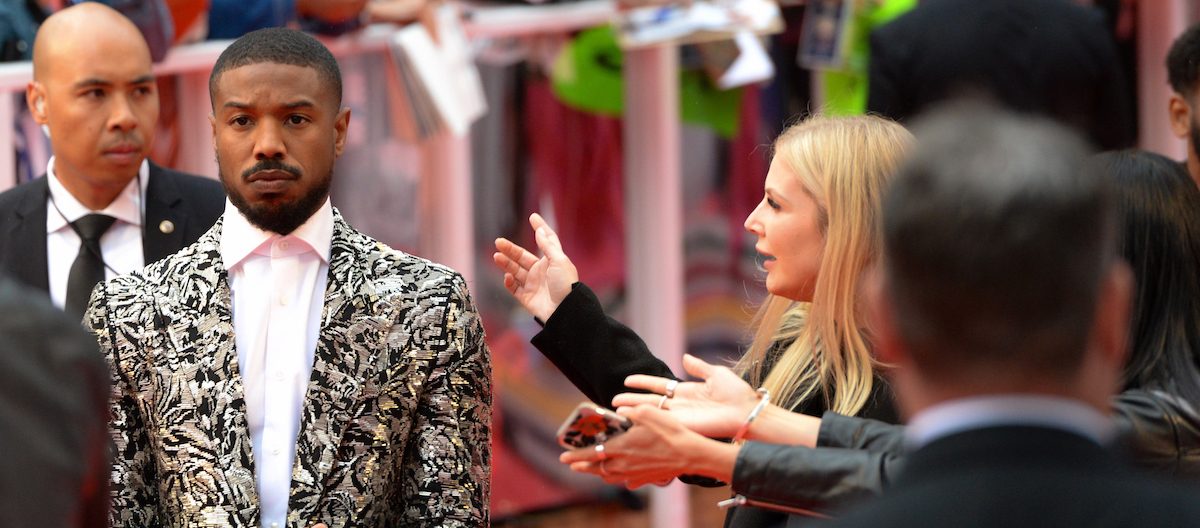Opinion: “Just Mercy” review: celebrating mercy and truth

The best movies are the ones that provide a stark contrast to the worst aspects of our culture. In a time when our culture is as politically, religiously and socially divisive as it has ever been, the desire to prove a certain agenda can conveniently sweep aside the one thing that should unify rather than divide: truth.
Uncompromising, impassioned and reckless pursuit of truth makes “Just Mercy” a refreshing, timely reminder that in the world of “fake news” and opinion, truth is still the most powerful ally a person can have. Starring Michael B. Jordan as the activist lawyer Brian Stevenson and Jamie Foxx as death row convict Walter McMillian, “Just Mercy” is not just a legal drama, but a courageous struggle to speak truth to power.
Based on Stevenson’s autobiographical memoir of the same name, “Just Mercy” tells a story early in Stevenson’s career as a recent Harvard Law graduate who moves to Alabama in the 1990s to start the Equal Justice Initiative, designed to help those wrongfully convicted on death row in Alabama. One of the first cases he takes is Walter McMillian, an African-American man convicted of murdering an 18-year-old white girl, despite there being no physical evidence and severe holes in the testimony of the only eyewitness.
As Stevenson investigates the case and appeals to various courts, he is met with criticism, threats and opposition at every turn. To the white and powerful in the community, McMillian’s race and reputation have already determined his fate, and his presumed guilt was never challenged. This inescapable plight of African-Americans in Alabama serves to highlight the fact that for the judge, sheriff and district attorney, McMillian’s conviction had nothing to do with facts and everything to do with appearance.
Destin Daniel Cretton, the director and writer of “Just Mercy,” is unapologetic in the tone and message of his film. In no uncertain terms, the film was made to challenge racial relations, the death penalty and the unequal plight of black men in the criminal justice system. As is the case with many movies based on true stories, the final credits are filled with character biographies and statistics about the death penalty and wrongful convictions.
But the performances by both Jordan and Foxx have resonated with audiences because of the raw, emotional and challenging nature of the story and the life-or-death stakes of every decision.
In one particularly impactful scene, McMillian describes how his ordeal and time in death row had clouded the truth in his mind, as the truth was ignored time and time again in order to put blame on him. But as his attorney and his community continue to fight for him, McMillian tells Stevenson, “I got my truth back.”
Jordan shows the emotional battles Stevenson endured to help others get the justice they deserved. As he battles against prejudice and hatred, Stevenson feels alone in his mission, but his desire to find the truth carries him on, and the black community surrounds and embraces him.
McMillian was convicted of murder for every reason except the truth. Stevenson forces the truth to be brought back to the forefront, and in the process, he shows the power that it can have.
The truth brings hope to a hopeless community. The truth brings justice to a man who didn’t believe a man like him could see justice in the American South. The truth saves an innocent life that bigotry and prejudice wanted to take away.
Almost 30 years later, the truth has not lost even one ounce of its power. It is still the most powerful ally for those who love justice. John 8:32 says, “You will know the truth, and the truth will set you free.”
On the surface, “Just Mercy” is another entertaining legal drama based on a true story. At its core, the film is so much more. “Just Mercy” is a needed, timely reminder of the power of the truth, and an important example of a man willing to sacrifice his reputation and challenge the status quo, despite seemingly insurmountable odds, because he knew the truth, and he refused to stop until the whole world did too.
Wylie is the assistant sports editor. Follow his work on Twitter.
